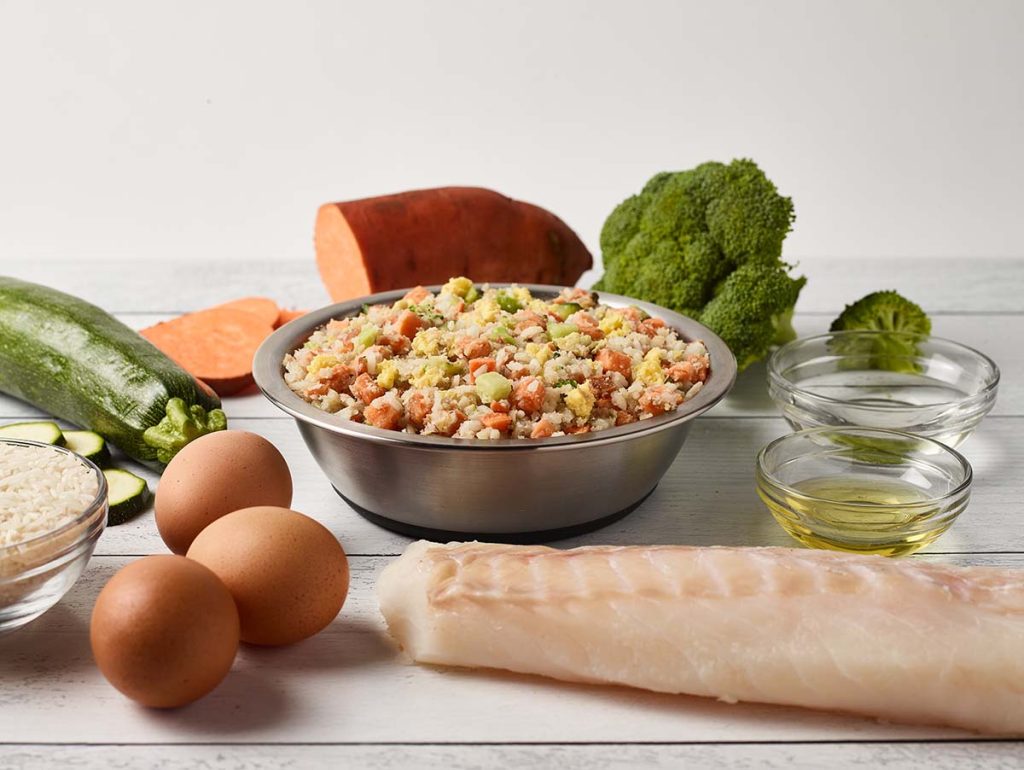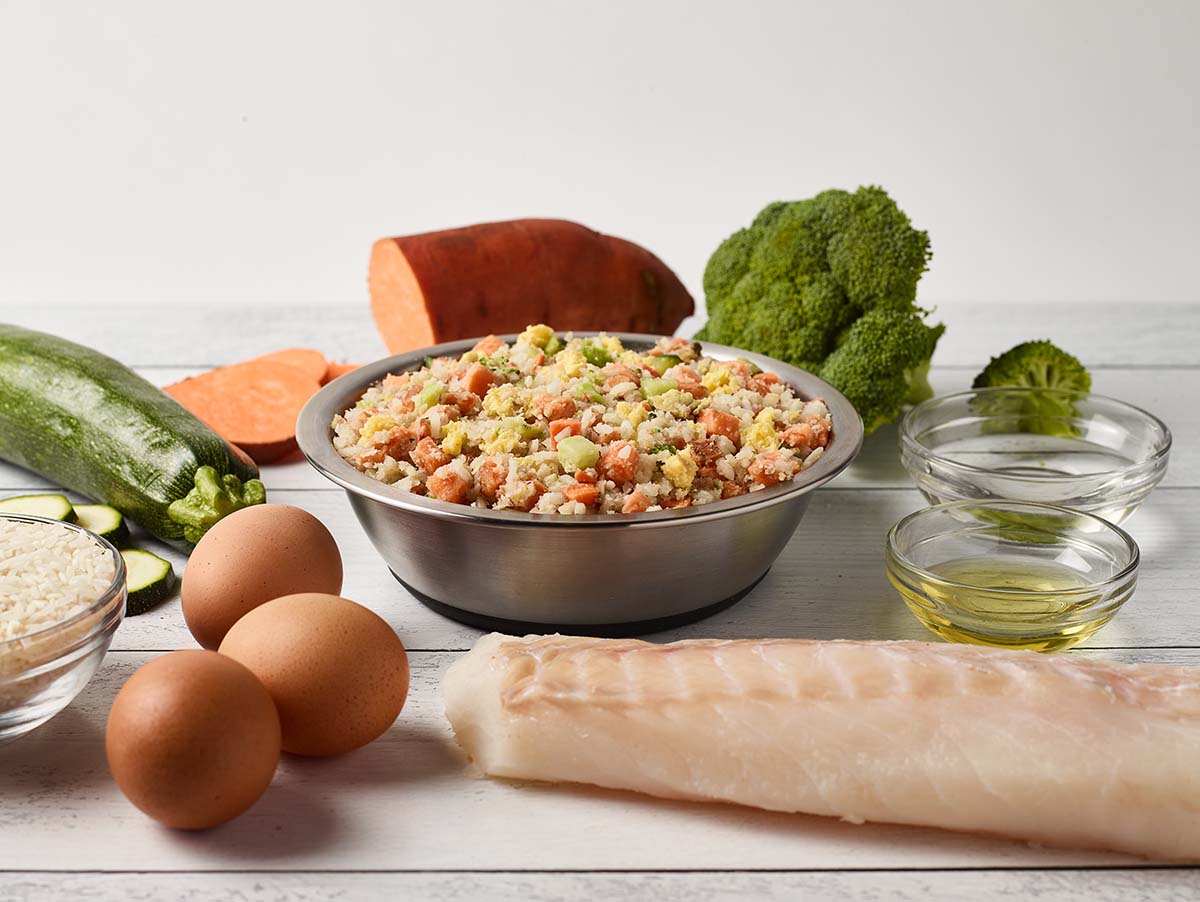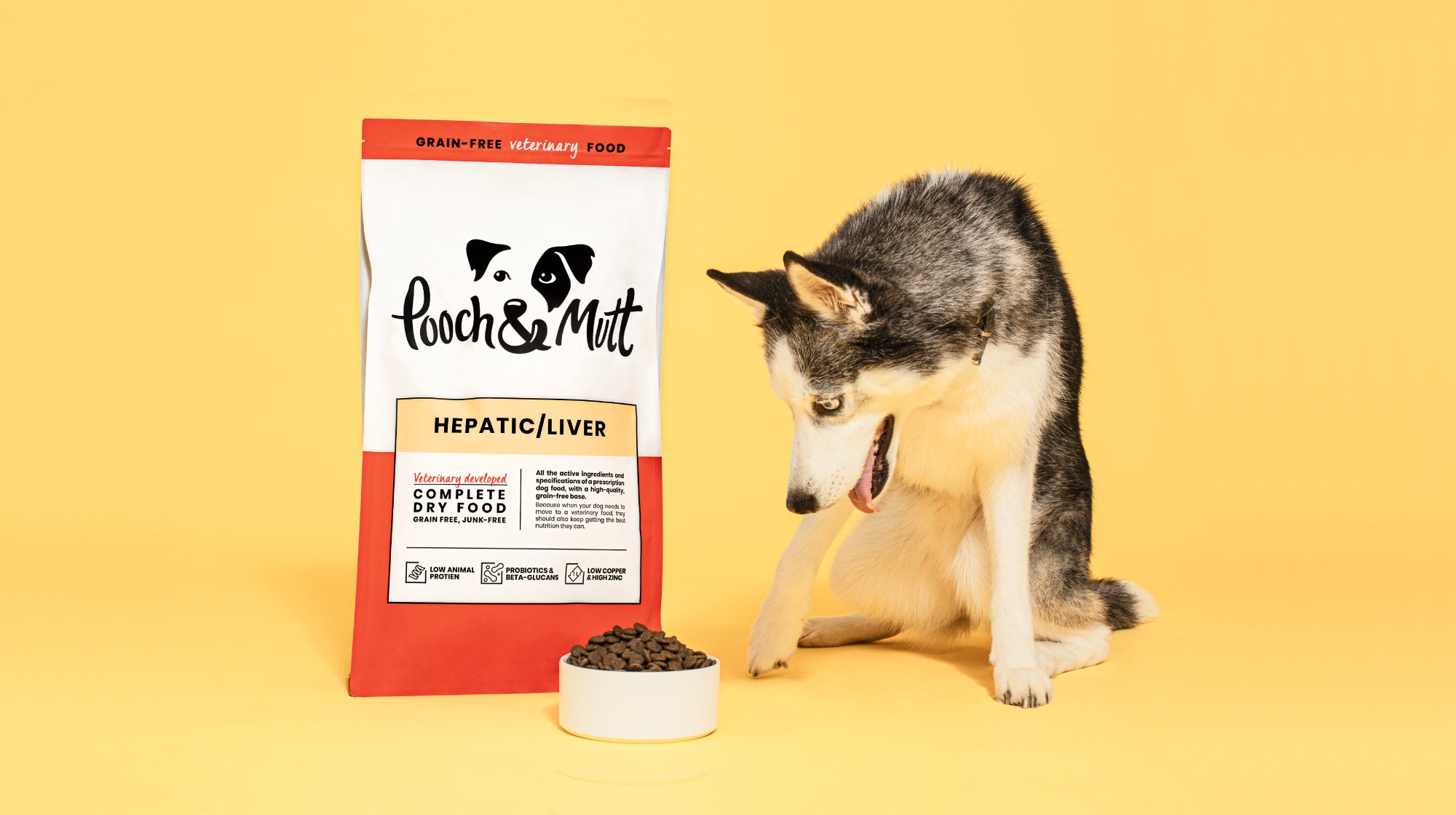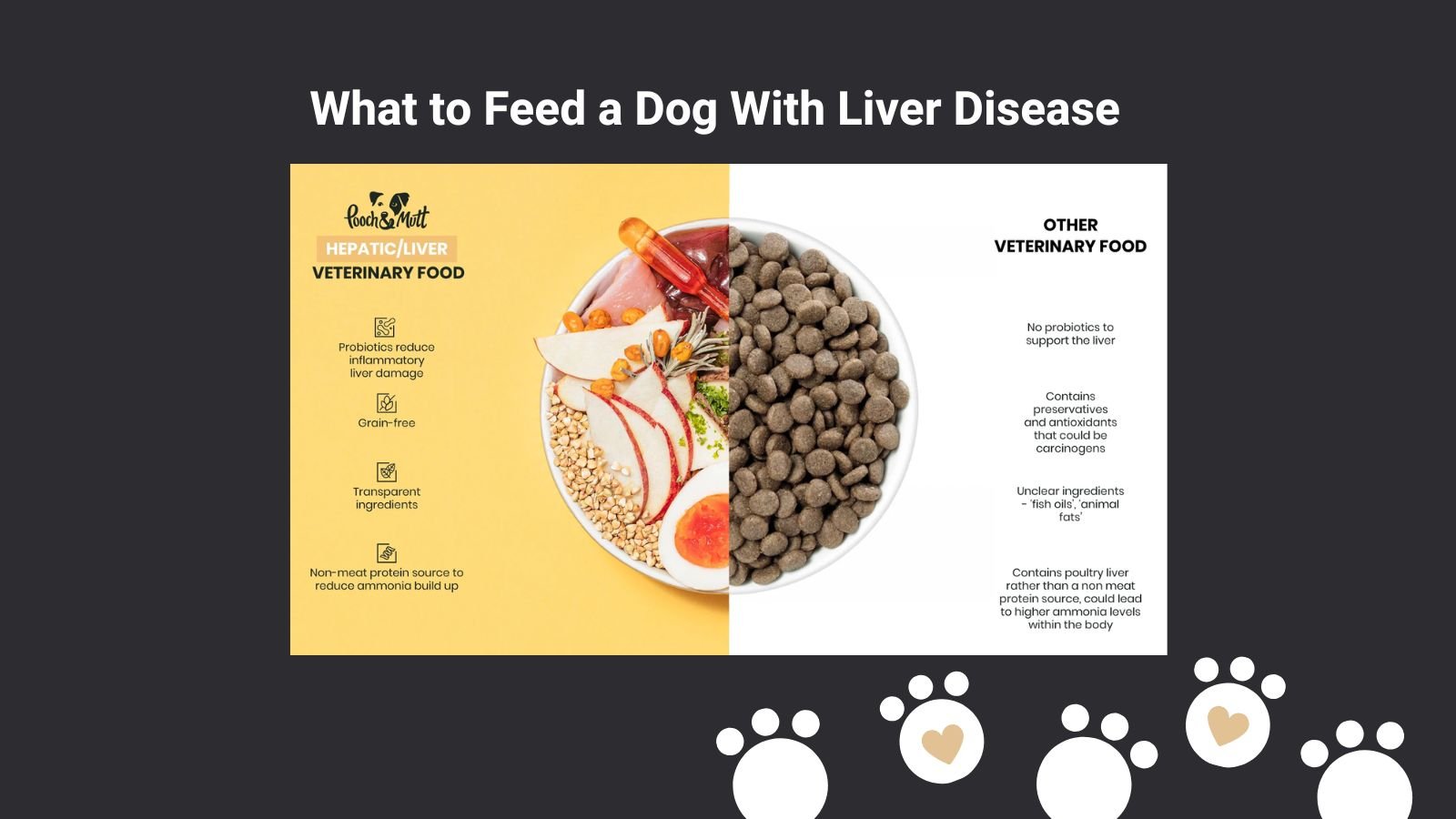Find out What to Feed a Dog With Liver Disease. To feed a dog with liver disease, offer low-fat, high-quality protein sources like skinless poultry or fish. Avoid foods high in copper, and consult a vet for a tailored diet plan.
Liver disease in dogs requires a careful diet to support liver function and overall health. Providing the right nutrition can help manage symptoms and improve the quality of life for your furry friend. With the proper diet and guidance from a veterinarian, you can ensure that your dog receives the necessary nutrients while avoiding ingredients that may exacerbate their condition.
Let’s explore the best feeding practices for dogs with liver disease to promote their well-being and vitality.

Credit: www.justfoodfordogs.com
Recognizing Liver Disease In Dogs
For dogs with liver disease, feeding a high-quality, easily digestible diet is crucial. Opt for low-fat, protein-rich foods to support their liver function. Consider consulting with a veterinarian for a specialized diet plan tailored to your dog’s specific needs.
Recognizing Liver Disease in Dogs
Liver disease in dogs can present with a variety of symptoms, making it crucial for pet owners to recognize the signs early on. Common symptoms of liver disease in dogs include jaundice, vomiting, diarrhea, lethargy, and loss of appetite. It’s important to monitor your dog’s behaviour and physical condition to identify any signs of potential liver issues.
Common Symptoms
Diagnostic Approaches
When liver disease is suspected, veterinarians may use diagnostic approaches such as blood tests, ultrasound, and liver biopsies to confirm the condition. These tests can provide valuable insights into the liver’s function and help determine the appropriate course of treatment for the dog.
Overall, being attentive to the signs of liver disease in dogs is crucial for early detection and effective management.
Importance Of Diet In Managing Liver Conditions
Diet plays a crucial role in managing liver disease in dogs. Feeding a dog with liver disease requires a carefully balanced diet that is low in protein, and high in carbohydrates, and includes supplements such as vitamin E and omega-3 fatty acids to support liver function.
It is recommended to consult with a veterinarian to determine the best diet plan for a dog with liver disease.
Role Of Nutrition
The role of nutrition in managing liver conditions in dogs cannot be overstated. A carefully curated diet plays a crucial role in supporting liver function and minimizing the symptoms associated with liver disease. By providing the right nutrients, pet owners can help alleviate the stress on the liver and promote overall well-being in their canine companions.
Dietary Adjustments Impact
Dietary adjustments have a direct impact on the management of liver disease in dogs. By tailoring the dog’s diet to accommodate their condition, pet owners can reduce the strain on the liver and improve the dog’s quality of life. Proper nutrition can aid in minimizing inflammation, promoting healing, and supporting the liver’s essential functions.
Principles Of A Liver-friendly Diet
A liver-friendly diet for dogs with liver disease includes low-fat, high-quality protein sources such as skinless poultry or fish. Incorporating easily digestible carbohydrates like rice and vegetables can help support the liver’s function. Additionally, feeding smaller, frequent meals throughout the day can aid in managing the condition.
When managing a dog with liver disease, it’s crucial to adhere to a liver-friendly diet. This diet focuses on providing the necessary nutrients while minimizing stress on the liver.
Key Nutrients
- Protein: Opt for high-quality, easily digestible sources like lean meats.
- Omega-3 Fatty Acids: Found in fish oil, they support liver function and reduce inflammation.
- Antioxidants: Help protect liver cells from damage; include fruits and vegetables like blueberries and carrots.
- B Vitamins: Essential for liver health, found in sources like eggs and whole grains.
Foods To Avoid
- High-Fat Foods: Can strain the liver; avoid fatty meats and excessive oils.
- Salt: Contributes to fluid retention and can worsen liver issues.
- Processed Foods: Often contain additives that are hard for the liver to process.
- Toxic Foods: Grapes, onions, garlic, and chocolate can be harmful to a dog’s liver.

Credit: www.justfoodfordogs.com
Homemade Diets: Pros And Cons
When it comes to managing a dog with liver disease, nutrition plays a crucial role in supporting their overall health and well-being. Homemade diets can offer both benefits and potential risks that dog owners should carefully consider.
Benefits Of Homemade Meals
- Control Over Ingredients: By preparing homemade meals, you can carefully select and control the quality of ingredients, ensuring that your dog receives a diet that aligns with their specific dietary needs.
- Fresh and Nutrient-Dense Foods: Homemade meals can provide a higher level of freshness and nutrient density compared to commercial dog foods, which may be beneficial for dogs with liver disease.
- Customization: You can tailor the homemade diet to suit your dog’s individual preferences and dietary requirements, allowing for a more personalized approach to their nutrition.
Potential Risks And Considerations
- Nutritional Imbalance: Inadequate nutritional balance in homemade diets can pose a risk to your dog’s health, especially when dealing with liver disease. It is essential to ensure that the diet meets all of your dog’s nutritional needs.
- Bacterial Contamination: Improper handling and storage of homemade meals can lead to bacterial contamination, potentially exacerbating your dog’s liver condition.
- Time and Effort: Preparing homemade meals requires time and effort, and it may not be feasible for all dog owners to consistently maintain a balanced and varied homemade diet for their pet.
Commercial Diets Designed For Liver Health
Commercial diets designed for liver health can play a crucial role in managing liver disease in dogs. These specialized diets are formulated to support liver function and provide the necessary nutrients while minimizing the workload on the liver. When selecting a commercial diet for a dog with liver disease, it’s important to consider the specific nutritional requirements and the quality of the ingredients.
Reading Labels
When choosing a commercial diet for a dog with liver disease, reading the labels is essential to ensure that the diet meets the specific nutritional needs and is safe for the dog’s condition. Look for diets that are low in copper, moderate in high-quality protein, and high in antioxidants and essential fatty acids. Avoid diets with artificial preservatives, colours, and flavours, as these can potentially exacerbate liver issues.
Recommended Brands
Several reputable brands offer commercial diets specifically designed for liver health in dogs. These brands have gained recognition for their commitment to providing high-quality, therapeutic nutrition tailored to support liver function. Some recommended brands for liver-friendly commercial diets include:
- Hill’s Prescription Diet
- Royal Canin Veterinary Diet
- Purina Pro Plan Veterinary Diets
Supplements That Support Liver Function
Liver disease in dogs can benefit from specific supplements that support liver function. Essential supplements and selecting high-quality options play a crucial role in managing the condition.
Essential Supplements
1. Milk Thistle: A potent antioxidant that aids liver cell regeneration.
2. Omega-3 Fatty Acids: Reduce inflammation and support overall liver health.
3. Vitamin E: Helps reduce oxidative stress on the liver.
How To Choose Quality Supplements
1. Look for USP Verified or NSF Certified supplements for quality assurance.
2. Check for third-party testing to ensure purity and potency.
3. Consult with your vet to determine the right dosage and supplement combination.
Feeding Strategies For Dogs With Liver Disease
Meal Frequency And Size
When feeding a dog with liver disease, it’s important to consider the frequency and size of the meals. Small, frequent meals can help reduce the strain on the liver and aid in digestion. Divide the daily food intake into several small portions to provide a steady supply of nutrients without overwhelming the liver.
Appetite Stimulation Techniques
Dogs with liver disease may experience a decreased appetite. Incorporate tempting aromas into their meals by adding a small amount of low-sodium broth or warm water to their food. Offering highly palatable and easily digestible foods can also help stimulate their appetite.
Monitoring Your Dog’s Health And Diet Efficacy
Monitoring Your Dog’s Health and Diet Efficacy is crucial for managing liver disease. Regular veterinary check-ups and vigilant observation of signs of dietary success or issues are essential components of this process.
Regular Veterinary Check-ups
Regular veterinary check-ups are indispensable for dogs with liver disease. These visits enable the veterinarian to assess the dog’s overall health, monitor the progression of the liver disease, and make any necessary adjustments to the treatment plan. Veterinary professionals will also conduct blood tests and imaging to evaluate liver function and ensure that the prescribed diet is effectively supporting the dog’s health.
Signs Of Dietary Success Or Issues
Observing signs of dietary success or issues is crucial in managing liver disease in dogs. Positive indicators include improved energy levels, a healthy coat, and stable weight. On the contrary, signs such as lethargy, loss of appetite, or digestive disturbances may signal dietary issues that require immediate attention. Regular monitoring of these signs allows for prompt adjustments to the dog’s diet, enhancing its efficacy in supporting liver health.

Credit: www.poochandmutt.co.uk
Frequently Asked Questions
What to Feed a Dog With Liver Disease?
To feed a dog with liver disease, offer low-fat, high-quality protein sources like skinless poultry or fish. Avoid foods high in copper, and consult a vet for a tailored diet plan.
What Is The Best Food To Feed A Dog With Liver Disease?
A low-fat, high-quality protein diet is best for dogs with liver disease. Consider feeding them cooked vegetables and lean meats.
How Long Can Dogs Live With Liver Disease?
The life expectancy of dogs with liver disease depends on the severity of the condition and how soon it is diagnosed. Mild cases can be treated with medication and diet changes, while advanced cases may require surgery or a liver transplant.
Regular veterinary checkups and early detection are crucial for prolonging a dog’s lifespan.
How To Reverse Liver Damage In Dogs?
To reverse liver damage in dogs, consult a veterinarian for proper diagnosis and treatment. Follow prescribed medications and diets.
How Do You Make A Dog With Liver Disease Comfortable?
Ensure your dog rests, eats a balanced diet, takes prescribed medication, and visits the vet regularly.
Conclusion
Feeding a dog with liver disease requires a special diet that is low in fat and high in protein. It is important to work closely with your veterinarian to determine the best diet for your dog’s specific condition. Avoid feeding them table scraps or treats that are high in fat as it can worsen their liver condition.
With the right diet and care, dogs with liver disease can still live a happy and healthy life.

Hello I am Farhana I have been doing research on dogs since last 10 years. I have been doing research on dog special parts or dog food since last 10 years. I have gained knowledge about my dog in these ten years so. I want to blog about it daily.

